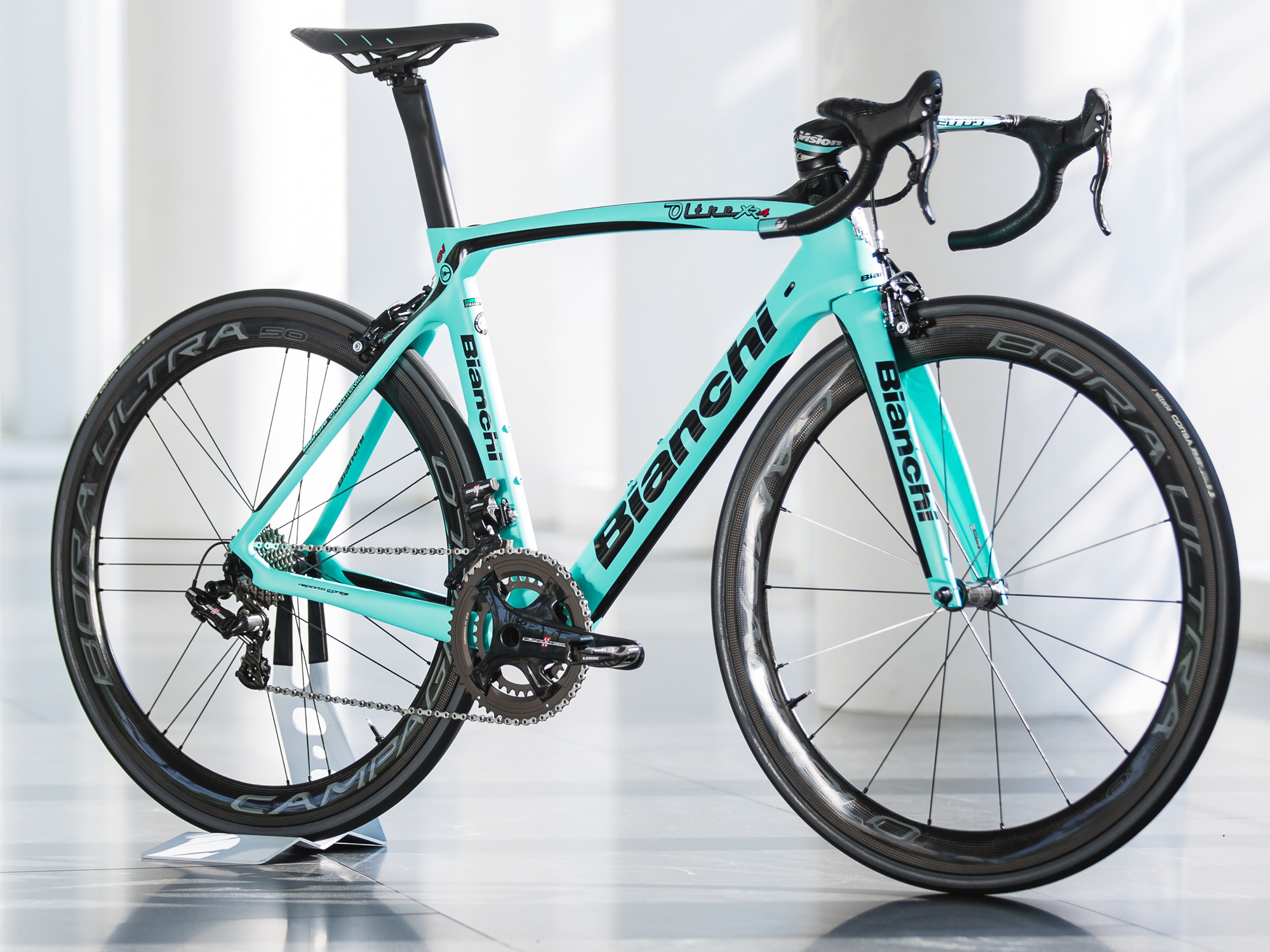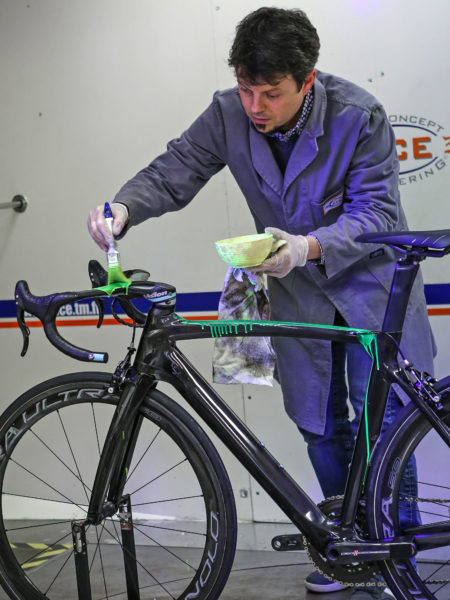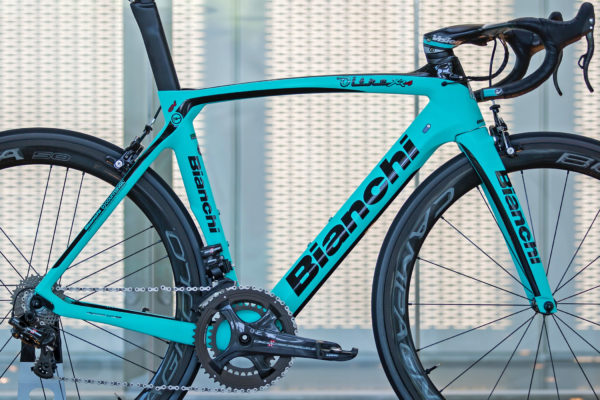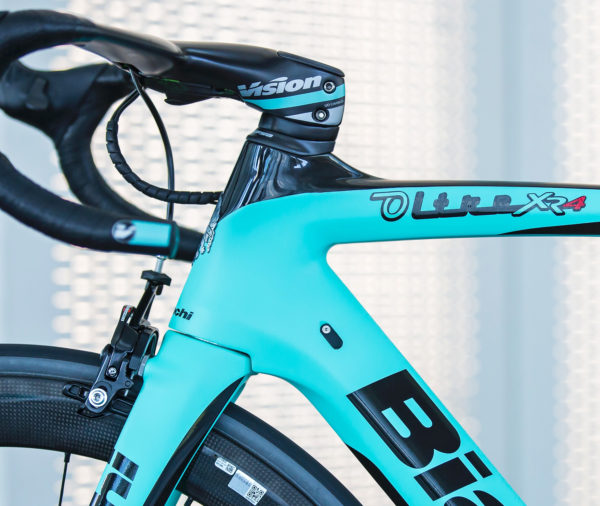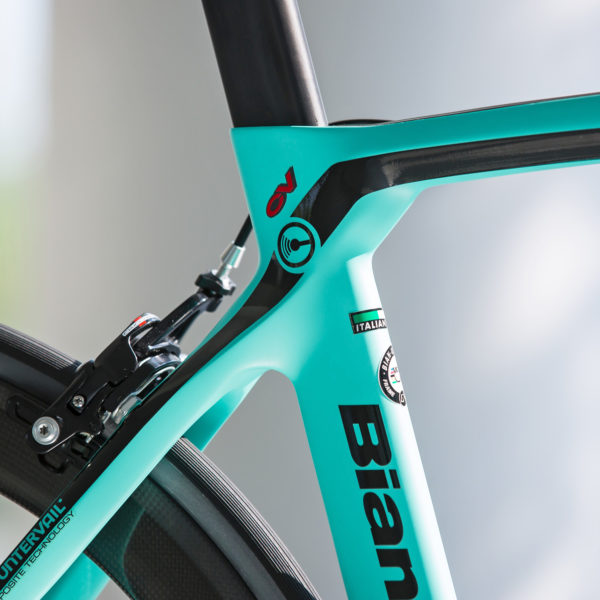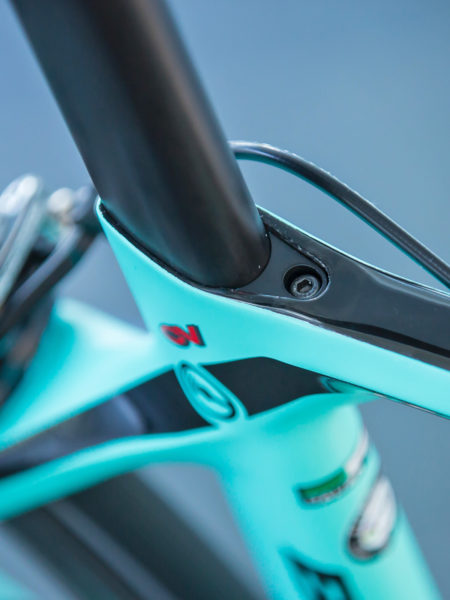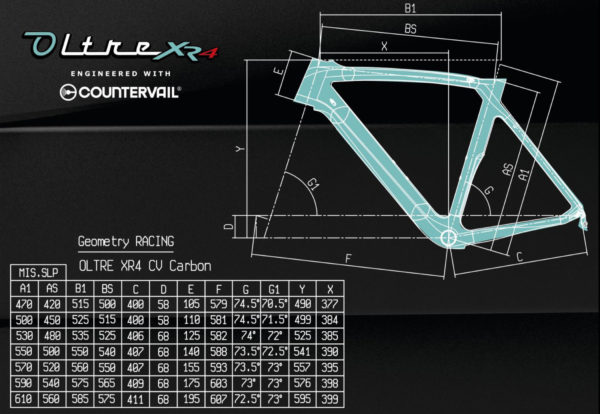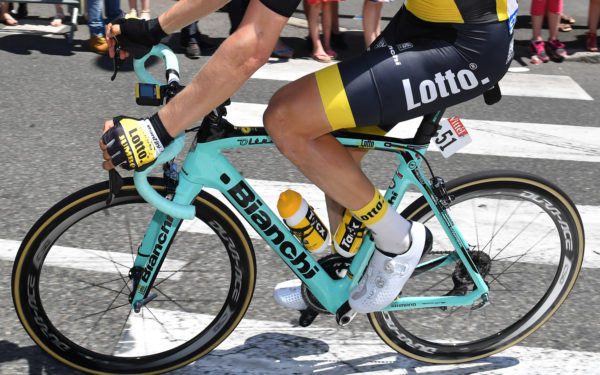
The new Oltre XR4 aero road bike is Bianchi’s fifth bike to include their new carbon Countervail vibration damping tech. We got a first glimpse of the new bike being tested, then raced at the Tour de Suisse by Team Lotto Jumbo just a month ago in the lead up to le Tour. But now we have a detailed look at the new bike and the full low-down on how Bianchi puts what they call vibration-cancelling tech into its carbon for their “Stay Aero for Longer = Go Faster” aero race bike concept. Join us for a look at the developed-for-NASA tech and how it has been tuned to maximize the aero advantage and high-speed control after the break…
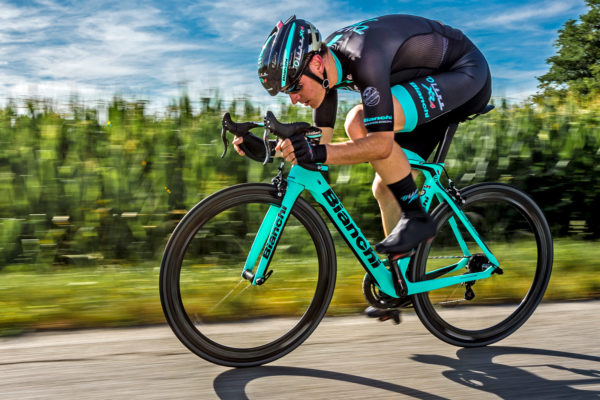
With the idea that the longer you can stay in an aero position on the bike, the faster you will go, Bianchi decided that their aero Oltre XR was the perfect platform for the next iteration of their Countervail tech. The rider’s body is said to make up ~80% of drag on the bike, so staying in the most aero position is crucial, but often difficult on a harsh riding aero bike. So the Countervail vibration damping tech in the new Oltre XR4 was designed to both reduce fatigue and increase bike control so the rider could hold their most aero tuck longer at speed.
Developed by Materials Sciences Corp. for NASA application we’ve seen Countervail in Binachi’s light Specialissima, long distance Infinito CV, TT0ing Aquila CCV, and most recently their Methanol CV XC race hardtail. It combines a viscoelastic material interwoven with the carbon for some pretty strong claims of totally stopping road buzz and other vibrations that could negatively impact handling dead in their tracks.
Besides making for a comfortable and vibration free aero bike the new Oltre XR4 gets the same aggressive race geometry, efficient aerodynamics, and light weight that had made its predecessor suitable for the Pro Tour and in this new generation has already been successfully raced in the pro peloton by Dylan Groenewegen and Sep Vanmarcke of Team LottoNL-Jumbo. In fact, with CFD design and fun times in the wind tunnel with Bianchi engineers letting fly with fluorescent paint, the new bike is said to save 20W of the already aero XR2.
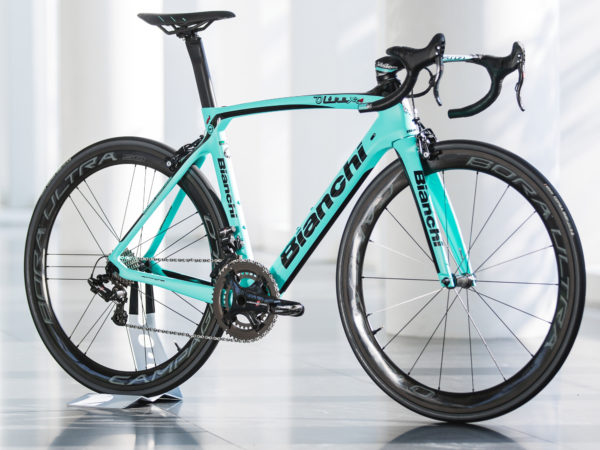
Like we saw in out first look at the bike, the new Oltre XR4 is visually distinct from the outgoing XR2. The new frame follows the aero trend of dropping the seatstays down the seattube, both for a smaller front profile in the wind and to allow for a bit of rear end comfort. Thee seatstays themselves get all new shaping with a deeper more aero profile allowed by the use of Coutervail which still is able to deliver the smooth ride the previously necessitated the pencil thin stays of the XR2. The new chainstays also flow a bit more horizontally out of the BB cluster, only ticking up just before the dropouts, for similar aero effect.
Additionally the fork is wholly redesigned with a wider set and more deeply aero shaped set of legs that sweep back from the dropouts up to the headtube, much like was developed for their Aquila time trial bike back in 2014. The 370g full carbon fork gets the Countervail treatment and uses a unique 1.125-1.4″ tapered steerer.
At the reshaped headtube and stem junction, Bianchi has incorporated a semi-integrated design that uses a headset cap and steerer spacers shape to smooth air flow onto the frame. The headtube’s extension above the toptube also gets a small shark fin that is designed to limit the turbulence of air coming around the headtube and along the top tube.
The bike gets fully internal cable routing, a tapered head tube, and an optional aero topcap that works with the slippery new Vision Metron 5D combo bar/stem. The bike uses direct mount brakes and a PressFit bottom bracket. The XR4 utilizes a proprietary aero seatpost with an adjustable offset head, and is held in place by a hidden internal wedge clamp.
The new bike will be available in 7 sizes from 47-61cm. Claimed weight for the new monocoque carbon frame is 980g in a 55cm with the more basic black paint job. Five total frameset color schemes will be available, as well as 8 different build kits including electronic and mechanical drivetrain options from Campagnolo, Shimano, and SRAM, with Zipp and Fulcrum carbon wheel and Rotor 3D+ InPower cranks also available as upgrades to the standard complete builds.
